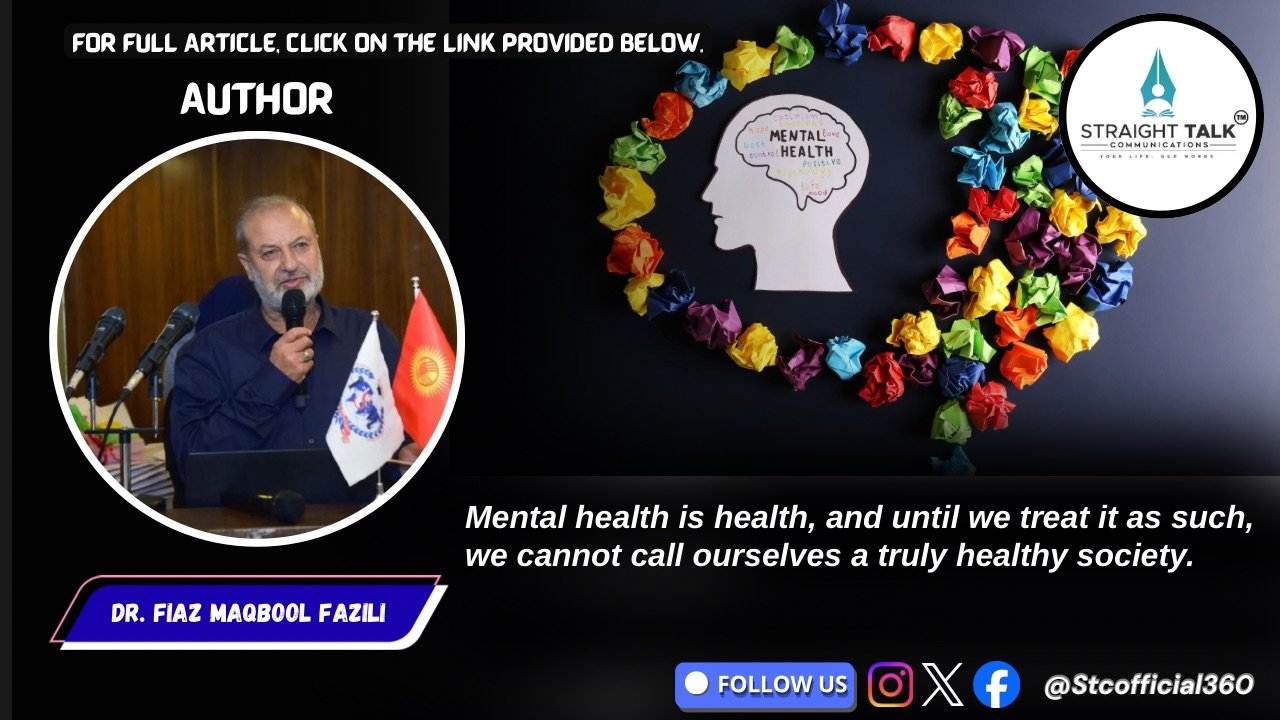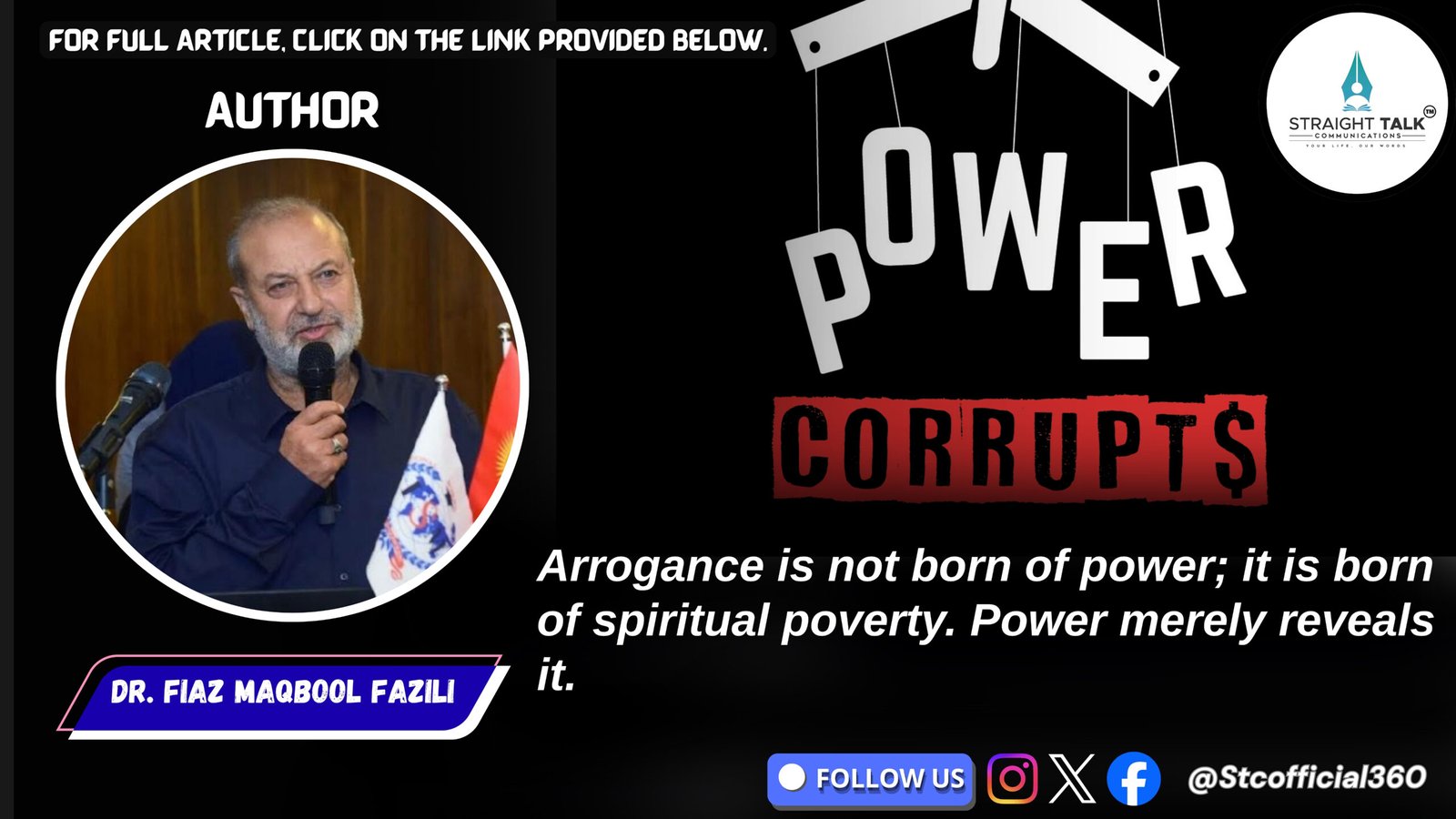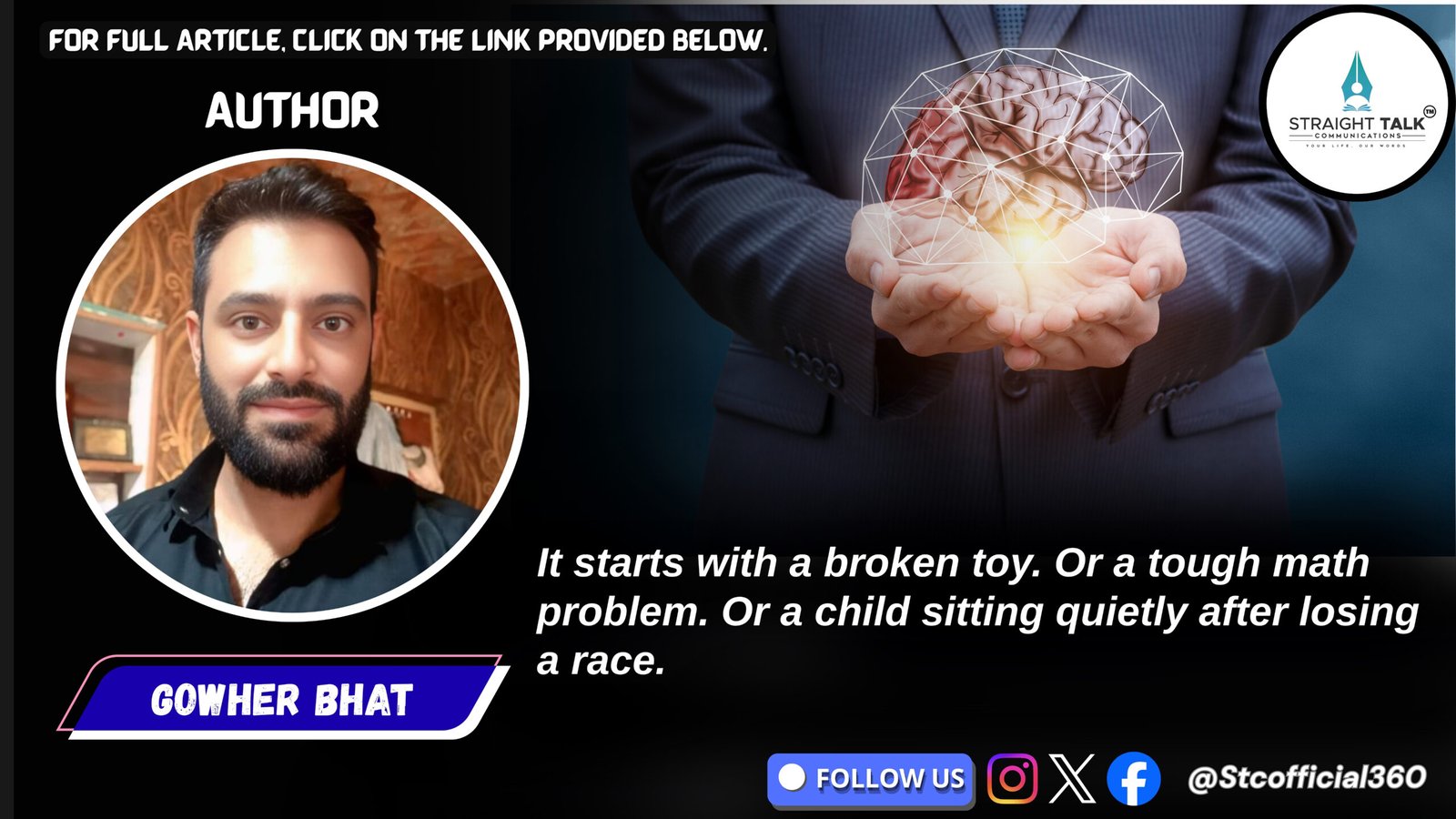Mental Unhealthiness: A Huge Challenge, Under or Misdiagnosed

Mental health is health, and until we treat it as such, we cannot call ourselves a truly healthy society.
Dr. Fiaz Maqbool Fazili
In Kashmir today, a silent crisis is growing—one we neither talk about openly nor act upon with the seriousness it deserves. Mental health, long brushed under the carpet, is emerging as one of the biggest public health challenges of our time. The word “pagal” has been used so loosely, so carelessly, that it has become both a stigma and a prison. It has kept people from seeking help, kept families from acknowledging the struggles of their children or elders, and kept society from treating mental health with the same dignity as physical illness. If there is one word we must urgently abandon from our vocabulary, it is this: calling someone “woh pagal hai.”
At a recent CME held at Government Medical College Srinagar, startling facts were shared: one in nine people has dementia. This is not a statistic from some faraway land—it is our reality here. Could it be that many of these cases are subtle forms of Alzheimer’s disease that we are overlooking? Are we missing the early signs? Dementia is not just an illness of the old—it can begin insidiously, and when ignored, robs both patients and families of years of quality life. Yet the bigger tragedy is not simply the disease itself but our culture of denial, silence, and shame.
Beyond dementia, the spectrum of mental health concerns is wide. Depression among young people is on the rise. Behavioral problems in children are being reported with increasing frequency. And more disturbingly, the news of teenagers taking their own lives or falling into the trap of substance abuse is no longer rare. Privately, mental health specialists share that a shocking number of young girls in Kashmir are now suffering from depression, anxiety, or drug dependence. Behind the polite smiles and modest appearances, there is deep turmoil.
Kashmir has always prided itself on being a traditional, modest, God-fearing society. We believed that faith, family, and culture insulated us from the darker sides of modern life. But the truth is that we are now caught in the same competitive race that grips the rest of the world. Modernity has brought new opportunities, but it has also brought crushing pressures: academic competition, career disappointments, broken family structures, and the relentless comparison culture of social media. For many young people, the struggle to cope silently ends in isolation or destructive choices.
What makes this worse is the stigma. Parents hesitate to take their children to a psychiatrist or counsellor because the very words “mental hospital” or “mental illness” conjure images of madness and shame,under an erroneous belief that a boy or girl shall have permanent tagg and finding spouse is difficult. Hospitals are still whispered about as “pagal khawanas,” as if crossing their doors would mark a person for life. This silence is deadly. It prevents early diagnosis, it delays treatment, and it condemns people to needless suffering. If a child has a fracture, parents rush to the orthopaedician. If a student has asthma, they seek out a chest specialist. But if the same student is crippled by depression, sleepless nights, or uncontrollable anxiety, too often the family insists it is “just stress” or “a phase.” By the time they reach a professional, the illness has already deepened its roots.
The first step, therefore, must be to destigmatize mental illness. We must begin in our homes, in our schools, in our mosques, and in our mohallas by abandoning the cruel habit of labeling people as “pagal.” This one word has destroyed more lives than we can count. It pushes people into silence, it makes families hide their suffering, and it strips patients of their dignity. Instead, we must talk about mental illness as what it truly is: a medical condition that can be diagnosed, treated, and often managed successfully. Depression, anxiety, schizophrenia, bipolar disorder, dementia—these are not curses. They are not punishments. They are illnesses, just as diabetes or hypertension are illnesses.
Early diagnosis is the difference between a life saved and a life lost. If Alzheimer’s is picked early, interventions can slow its progression and allow families to prepare with dignity. If depression is identified in a student, counselling and treatment can restore hope and prevent a suicide. If a child’s behavioural problem is addressed early, it can prevent a lifetime of struggle in academics and relationships. Yet this is only possible when families are willing to listen, when teachers are trained to recognize the warning signs, and when society as a whole learns to respond with empathy rather than judgment.
One of the biggest challenges in mental health today is the subtle manifestation of serious conditions such as narcissistic personality disorder, bipolar disorder, depressive psychosis, and Alzheimer’s disease. Their early signs—ranging from mood swings and irritability to memory lapses or unusual behaviour—are often dismissed as “normal stress” or temporary phases. This casual labelling delays recognition, diagnosis, and timely treatment. By the time families or caregivers realize the depth of the problem, valuable time is lost. We must learn to identify these warning signals early, abandon loose generalizations, and treat mental illness with the seriousness it demands.
Mental health is not only a clinical issue; it is also a cultural challenge. Our modest, religious society often tells people to pray more, to have stronger faith, or to hide their troubles for fear of gossip. Faith and spirituality can certainly provide strength, but they cannot replace professional care. Telling someone with depression to simply “be strong” is like telling someone with a broken leg to “walk it off.” Both need treatment. Both deserve compassion.
We also cannot ignore the reality of substance abuse, which is spreading like wildfire among our youth. Drugs are often a coping mechanism for unaddressed mental pain. When depression, anxiety, or trauma are ignored, young people turn to substances for temporary escape. This is not just a health issue but a social tragedy, weakening families, fueling crime, and destroying futures. Tackling drug abuse must go hand in hand with expanding access to mental health care.
So, what can be done? First, we must integrate mental health screening into our primary healthcare system, our schools, and our community programs. Teachers must be trained to identify students who are struggling. General physicians must be equipped to recognize early signs of depression, dementia, and behavioural problems. Second, government and civil society must invest in building more accessible mental health services, especially in rural and far-flung areas. Specialists are too few, and stigma is too strong. Outreach clinics, counselling centers, and school-based programs can bridge this gap. Third, media and religious leaders must play their role in changing the narrative. Sermons, columns, and campaigns must spread the message that mental illness is not madness—it is treatable, and those who seek help are courageous, not weak.
Finally, we as individuals must cultivate compassion. If someone in our neighbourhood behaves differently, let us not mock them. If a student in our family struggles silently, let us not dismiss them. If an elder forgets names or loses their way, let us not call it “old age madness” but recognize it as a possible medical condition requiring care. Every word we use, every attitude we display, can either push someone deeper into despair or pull them toward hope.
The challenge of mental health in Kashmir is immense, but it is not insurmountable. The biggest barrier is not medicine—it is mindset. Once we break the stigma, once we abandon words like “pagal,” once we accept that mental illness is not shameful but simply part of the human condition, then we can begin to heal. We owe it to our children, to our elders, to our society. The time to act is now, before more lives are lost to silence, before more families are broken by shame. Mental health is health, and until we treat it as such, we cannot call ourselves a truly healthy society.







